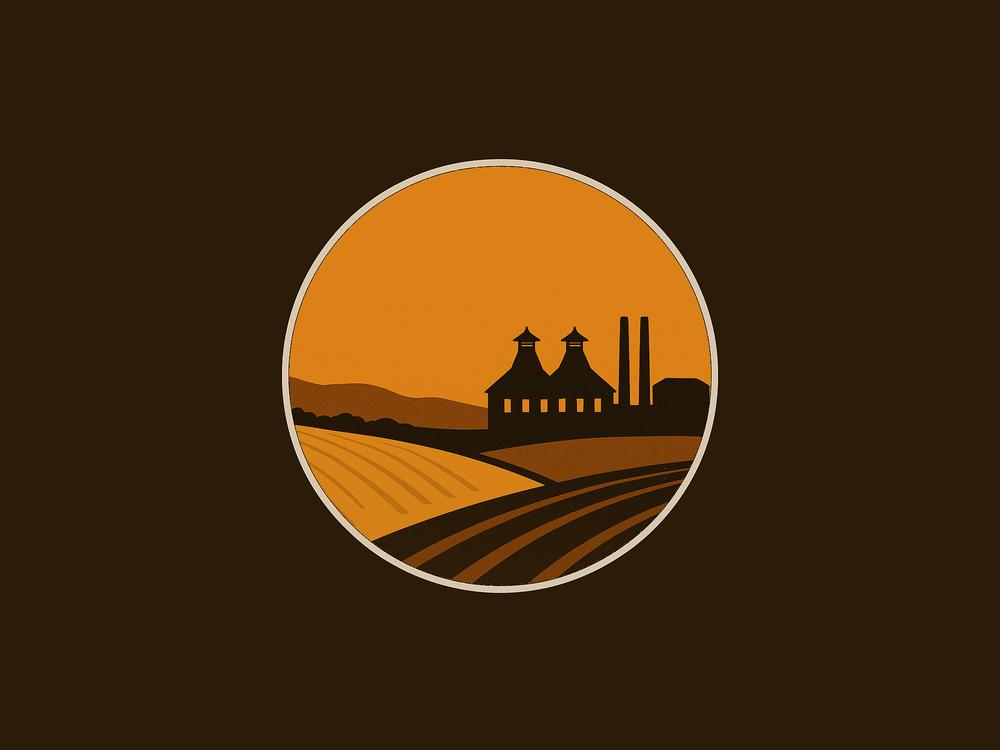Roseisle 'Deathstar' Maltings Pauses, Farmers Worry, Whisky Waits

Published November 16, 2025 by John Fegan
In the rolling farmland of Moray where barley grows, weather launches unprovoked attacks, and rumours ripen faster than crops, there stood the Roseisle Maltings. It worked away politely in the long shadow of Roseisle Distillery, a facility whisky fans called the Death Star distillery. Partly because it looked rather like the sort of place that might one day declare Tuesdays illegal. Happily it has yet to fire in anger. It had been dutifully turning barley into the foundational essence of whisky since 1981, which in distilling years is roughly equivalent to “ages and ages, give or take a committee meeting.” But then something genuinely eyebrow-raising happened.
Production stopped.
Not in the dramatic, doors-slamming, torches-lit, bailiffs-approaching sense. Instead, Diageo, the vast multinational with the apologetic grace of a very large elephant that suspects it has just stepped on something important, informed everyone that the pause was ‘temporary.’ The sort of temporary that arrives with no timeline, no promises, and just the faintest odour of accountants lurking in the shrubbery.
“All staff remain employed,” the company said. “We’ve simply redeployed them.” Which is corporate for: “Nobody panic, but please stop asking questions.”
This might have been reassuring, had it not been for the quieter voices whispering that Roseisle might not be taking grain next year. To a barley farmer, his is roughly the same level of cosmic disturbance as being told the sun may not bother rising on Tuesdays anymore.
Farmers, being the sort of people who face droughts, hailstones the size of terrified poultry, and agricultural policy written by entities apparently unfamiliar with agriculture, are not given to panic. Yet even they felt a distinct twitch of unease. Losing the local maltings is like losing a neighbour who not only borrows your tools but then also returns them, and occasionally hands you whisky as if the universe still makes sense.
Pencaitland shuts, euphemisms evaporate
Further south, Bairds Malt dropped the polite nonsense and came out with it. Pencaitland Maltings was closing. Permanently. Not pausing, reimagining or taking a breather. Not even pretending to strategically rebalance. Just shutting the doors because of a medium-term reduction in demand. In other words: Folk are at the required heroic rate required to keep the accountants smiling.
Growers, being a pragmatic bunch who know better than to wait for the next corporate plot twist, started shifting towards other crops. Rapeseed oil. Winter barley. Anything that did not rely upon the erratic gravitational pull of an industry dedicated to producing beverages that make humans sing with admirable enthusiasm and questionable pitch.
Jack Stevenson of NFU Scotland, a man who has weathered enough agricultural cycles to regard optimism as a form of ceremonial armour, reminded everyone that whisky is a five-billion-pound industry that requires nine hundred thousand tonnes of malting barley. “Sustainability, provenance, lower carbon footprints, all of that matters,” he said. “But none of it can happen if no one is actually growing the barley.”
Yellow fields rising
Statistics from AHDB soon arrived predicting a 30% rise in rapeseed oil plantings. This represents the sort of collective agricultural pivot normally only seen when farmers decide that growing something yellow and definitely sellable beats growing something unpriced, uncontracted, and slightly anxious.
For now, the story drifts into a pleasantly baffling fog of waiting. A whisky industry waiting for demand to rediscover its sense of purpose. Growers waiting for contracts that do not vanish like a misplaced towel. Everyone else waiting for clarification from a very large elephant that speaks in careful, polished sentences which mean almost nothing at all.
“Temporary,” they said.
Farmers, being farmers, will believe it when the grain starts moving again. When the maltings once more wakes up beside the great “Death Star” of a distillery across the road

